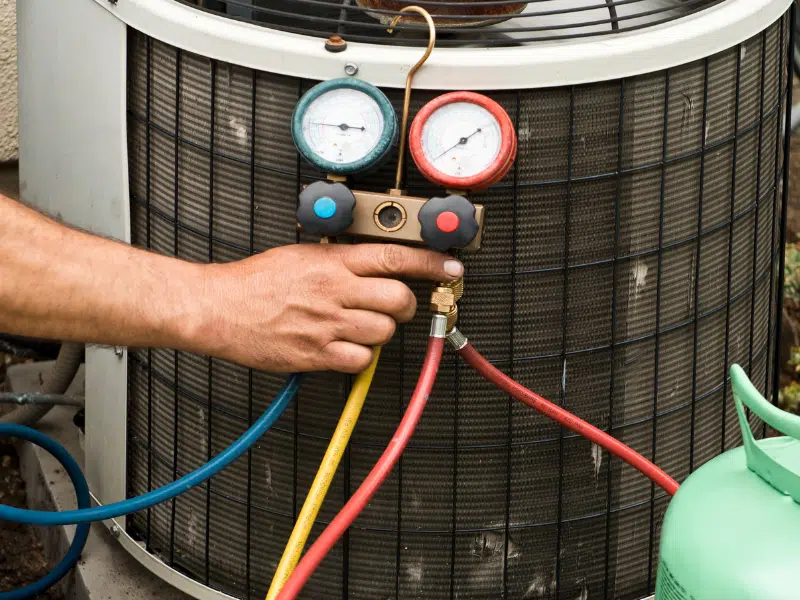Air Conditioning: Troubleshooting Your Cooling System

In the midst of scorching temperatures, a malfunctioning air conditioning system can quickly disrupt your indoor comfort. Imagine coming home after a long day, only to find your space devoid of cool relief. While the cause of such issues may seem elusive, a systematic approach to troubleshooting could reveal simple solutions. From diagnosing common culprits like filter blockages to understanding the intricacies of refrigerant levels, understanding the complexities of your cooling system can be a challenging task. However, with the right guidance and expertise, unraveling the mysteries behind your air conditioning woes might just be within reach.
Main Points
- Clean or replace filters to improve airflow and efficiency.
- Check refrigerant levels for optimal cooling performance.
- Ensure thermostat is functioning correctly.
- Unblock vents to allow proper air circulation.
- Regular maintenance is essential for system reliability.
Common Causes of Air Conditioning Issues
Common causes of air conditioning issues can stem from factors such as clogged or dirty filters obstructing airflow and low refrigerant levels affecting cooling capability. Filters play a critical role in trapping dust and debris, but when they become clogged, airflow is restricted, leading to decreased efficiency.
Additionally, insufficient refrigerant levels can impede the cooling process, resulting in an inability to maintain desired temperatures. By addressing these common issues promptly, homeowners can prevent further damage to their air conditioning systems.
Regular maintenance, such as filter replacement and refrigerant checks, is essential for ensuring the smooth operation of an AC unit. Being proactive in identifying and resolving these issues can help maintain a comfortable indoor environment throughout the year.
Troubleshooting Underperforming AC Systems
Addressing issues with underperforming air conditioning systems requires a systematic approach to troubleshooting and resolving common causes that hinder peak cooling efficiency. Common culprits include:
- Clogged or dirty filters obstructing airflow
- Low refrigerant levels impacting cooling capability
- Thermostat malfunctions
- Blocked vents hindering air circulation
To improve performance, start by checking and replacing dirty filters, ensuring proper refrigerant levels, and clearing any obstructions around vents and registers. Regular maintenance, such as cleaning condenser coils and inspecting evaporator coils, is essential for efficient AC function.
In cases of persistent issues, seeking professional help for thorough AC diagnosis and repair is recommended to restore the system’s cooling efficiency.
Expert Tips for Efficient Cooling
For peak cooling efficiency in air conditioning systems, expert tips suggest establishing a regular maintenance schedule to guarantee smooth operation and prevent common performance issues. Regularly changing filters, cleaning coils, and checking refrigerant levels are essential steps to maintain peak AC performance. Additionally, ensuring proper insulation and sealing leaks in ductwork can improve cooling efficiency. Setting programmable thermostats to higher temperatures when away and utilizing fans to circulate cool air efficiently can also aid in reducing energy consumption. Maintaining a clean and well-functioning cooling system not only enhances comfort but also extends the lifespan of the equipment.
| Tips for Efficient Cooling | Description | Benefits |
|---|---|---|
| Regular maintenance schedule | Change filters, clean coils, check refrigerant levels | Ensures smooth operation and prevents performance issues |
| Proper insulation and sealing leaks | Improve energy efficiency | Reduces energy consumption |
| Programmable thermostats and fans | Set higher temperatures when away, circulate cool air efficiently | Enhances comfort and reduces energy usage |